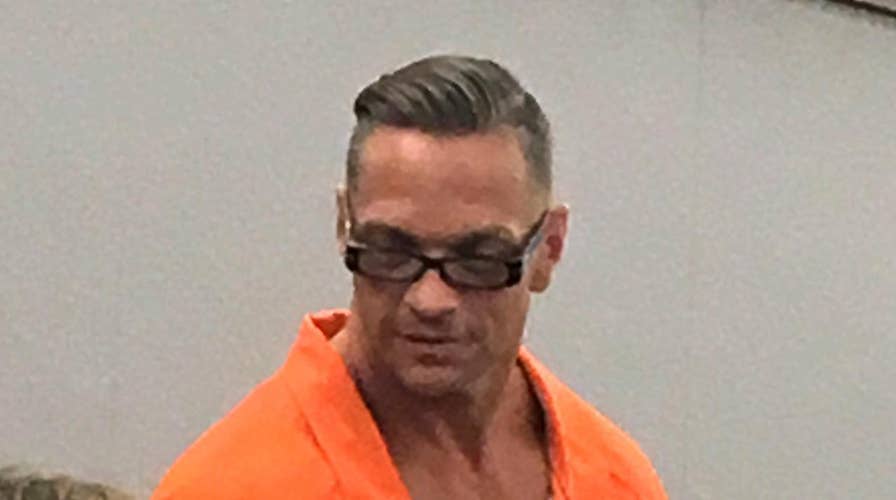Execution put on hold in Nevada over new drug cocktail
Judge issues stay in execution over controversial drug cocktail for lethal injection.
Scott Dozier is supposed to be Nevada’s first execution in more than a decade. But his case has hit a snag over objections he’s made about the selection of drugs that will be used in the lethal injection cocktail.
The execution was planned for November 14, and is now delayed indefinitely after a Clark County judge issued a stay. The state’s Supreme Court could decide his fate.
“We will be back in court December 7th and may know more then. There is nothing concrete as to when it will take place,” said Brooke Keast, a spokesperson for the Nevada Department of Corrections.
Dozier is adamant that the execution take place, but that it happens in an appropriate manner. He and his lawyers have steadfastly objected to the combination of drugs that plan on being used, a first in the country using the strong opiate, fentanyl, and the paralytic, cisatracurium, paired with diazepam, or more commonly known as valium.
None of these drugs have been used together in an execution before.
Appearing via video conference in court earlier this month, Dozier said, “No, I’m not going to change my mind. … I am still resolute and steadfast in this, and my primary goal at this juncture is to get this done.” He has said he is ready to die and does not mind if there is pain involved, but his lawyers have interjected on his behalf. Recently he was put on suicide watch.
Fentanyl is a deadly player in the nation’s ongoing opioid epidemic, but Dozier is objecting most strongly to the use of the paralytic, which he, along with civil rights groups and anti-death penalty groups, claims would mask any sign of trouble.
For example, if the fentanyl or diazepam were to wear off in the middle of the execution, Dozier would be paralyzed and therefore, not be able to cry out for help if he were to feel pain, thus disguising a botched execution if it were to happen.
“Because of the unknown factor of what these drugs will do, and if there will be pain caused, if it’ll be cruel and unusual punishment, has caused the stay in this case. … What we’re seeing is a trend in the law we basically don’t have the stomach or the desire to execute people in these cases anymore,” said criminal defense attorney, Ron Bamieh, who is not affiliated with the case.
The state is having trouble obtaining drugs that are normally used in executions. Fentanyl, cisatracurium, and Diazepam are currently on hand at the state’s disposal. Options are limited when it does run out of such drugs used in lethal injections, leading officials to keep coming up with new drug combinations.
“The reason we have to pick different drugs that haven’t been used in an execution before is because every time there is an execution with a particular drug, the drug companies decide not to sell it to us again. We have no choice but to choose different drugs that are available for purchase,” said Keast.
The state chapter of the ACLU is readying its legal options to intervene on Dozier’s behalf.
“To date, the state has withheld information about its new execution protocol, so there is no way for the American Civil Liberties Union of Nevada to verify whether Mr. Dozier will still be awake or sensate when he is paralyzed. … The potential for a torturous execution is very real,” the group said in a press release late last month.
The drug company Pfizer is strongly against the use of their drugs in executions and in a statement to Fox News said, “Pfizer makes its products to enhance and save the lives of the patients we serve. We strongly object to the use of any of our products in the lethal injection process for capital punishment.”
Dozier was convicted in 2007 of murdering and dismembering 22-year-old Jeremiah Miller in a Las Vegas motel room.










































